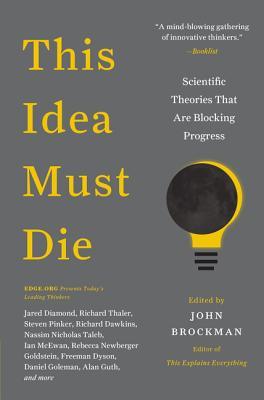Paul Bloom: Science Can Maximize Our Happiness
How can we determine the happiest society? As Derek Parfit and others have pointed out, even if you can precisely measure the happiness of each individual, this remains a vexingly hard question. Should we choose the society with the highest total happiness? If so, then a trillion people living miserable lives (but not so miserable that they would rather be dead) will be "happier" than a billion immensely happy people.
This seems wrong. Do we calculate averages? If so, then a society with a majority of extremely happy individuals and a small minority who are suffering terrible torment might be "happier" than a society where everyone is merely very happy. This seems wrong too. Or consider the contrast between (a) a society in which people are equally happy versus (b) a society with gross inequality— but which has both a larger total happiness and a larger average happiness than (a)? Which is happier? This is a hard problem, with real-world relevance, and it isn't the sort of problem that will be solved through the methods of science because science provides no empirical recipe for how overall happiness should be calculated.
Notes:
Folksonomies: science happiness
Taxonomies:
/society (0.709790)
/science/mathematics/arithmetic (0.295989)
/science (0.290369)
Keywords:
highest total happiness (0.994922 (positive:0.774575)), larger average happiness (0.946207 (positive:0.512440)), larger total happiness (0.930218 (positive:0.512440)), extremely happy individuals (0.873771 (neutral:0.000000)), vexingly hard question (0.863298 (negative:-0.453251)), Happiness http://edge.org/response-detail/25461 (0.835124 (positive:0.801211)), overall happiness (0.756078 (neutral:0.000000)), Paul Bloom (0.680633 (positive:0.528371)), happiest society (0.679970 (positive:0.801211)), Derek Parfit (0.674105 (positive:0.343193)), terrible torment (0.668348 (neutral:0.000000)), real-world relevance (0.644490 (neutral:0.000000)), small minority (0.636235 (neutral:0.000000)), empirical recipe (0.634772 (neutral:0.000000)), gross inequality— (0.627016 (neutral:0.000000)), hard problem (0.598528 (negative:-0.465538)), people (0.528052 (negative:-0.160141)), science (0.526964 (positive:0.801211)), averages (0.455320 (neutral:0.000000)), majority (0.453810 (neutral:0.000000)), contrast (0.452805 (neutral:0.000000)), sort (0.450760 (neutral:0.000000))
Entities:
Derek Parfit:Person (0.930627 (positive:0.343193)), Paul Bloom:Person (0.883896 (positive:0.528371))
Concepts:
Happiness (0.921150): dbpedia | freebase | opencyc
Science (0.856164): dbpedia | freebase | opencyc
Ethics (0.853479): dbpedia | freebase
Core issues in ethics (0.826211): dbpedia
Nirvana (0.768882): dbpedia | freebase
Mathematics (0.767386): dbpedia | freebase | opencyc
Eudaimonia (0.758690): dbpedia | freebase
Personal life (0.744920): dbpedia | freebase





